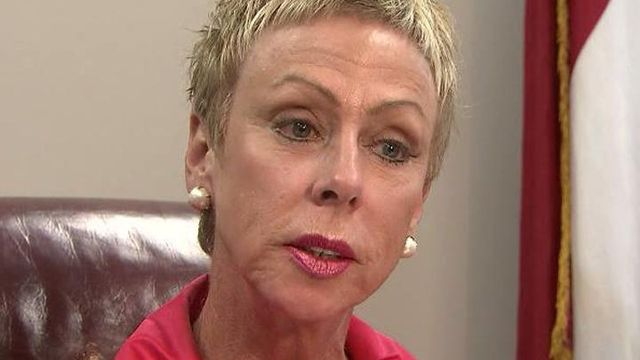Auditor: Fraud detection program savings fall short
Fraud detection programs by IBM and SAS have not generated the money initially projected. Medicaid officials say they are working.
Posted — UpdatedFor example, the state paid SAS Institute $2 million with a promise that their fraud detection software would identify at least $27 million in savings.
"As of the date of our audit, no funds have been recovered and no actual fraudulent activity has been identified," the audit report reads.
One contract with the Public Consulting Group did identify $38.5 million that should be recovered in over-payments. However, only $3.7 million of that had actually been recouped, and the auditor said the program has "not proven to be reliable, so the actual benefit being derived from the contract is unclear."
Systems deployed by IBM also came in for criticism.
Beth Wood, the elected state auditor, said Medicaid officials should renegotiate the fraud detection contracts.
"If they didn't think they could ever get the 900 percent of 1,250 percent, then why are those terms in the contract? Why not renegotiate? Why not us get something back? Because they absolutely could not deliver," Wood said, adding, "When are you going to start holding their feet to the fire and getting what we paid for?"
In the past, officials with the Department of Health and Human Services have praised the efforts put forward under the programs and have told both auditors and lawmakers that they need to be patient with the progress.
"North Carolina is leading the nation in innovative, sophisticated analysis of Medicaid billing, which has already helped us identify hundreds of millions in potential over-payments," DHHS spokeswoman Chrissy Pearson said in an e-mail. "These systems take time to implement, and after an intense start-up period, they are just beginning to show promise. DHHS has, in just two months, referred an unprecedented 35 cases to the Attorney General’s office and found $191 million in questionable payments."
With regard to the SAS project, she said, their system didn't begin operations until the audit was concluded.
Sen. Stan Bingham, R-Davidson, is co-chairman of the Senate committee that oversees health spending. He said lawmakers have been repeatedly "disappointed" by the departments fraud detection efforts.
"It's probably the most serious problem we have," Bingham said.
Those missed targets contributed to $414.7 million in Medicaid shortfalls that the General Assembly had to fill this spring, he said.
Pearson says that's not so. Lawmakers, she said, set a target of $48 million in so-called "recoupments." The agency actually brought in more than $112 million.
Bingham said that the Legislature tried to be conservative in its estimates of the savings, but the actual savings to Medicaid have been below even those conservative projections.
"We need to look at numbers we realistically can depend on," Bingham said, adding that he and other lawmakers will be looking at this problem over the fall and winter.
Person said the auditor's report and lawmakers overlook the value of the fraud detection systems that goes beyond the money they return to the state.
"The auditor’s report does not emphasize one crucial piece of information – the value of identifying fraudulent providers and stopping them from ever operating again," Pearson said. "Even if we don’t recoup all the money lost, it’s impossible to put a price tag on the deterrent effect of our efforts. We may never know just how many millions we will prevent from ever going out the door. This is the real value of the department’s fraud prevention programs."
• Credits
Copyright 2024 by Capitol Broadcasting Company. All rights reserved. This material may not be published, broadcast, rewritten or redistributed.






